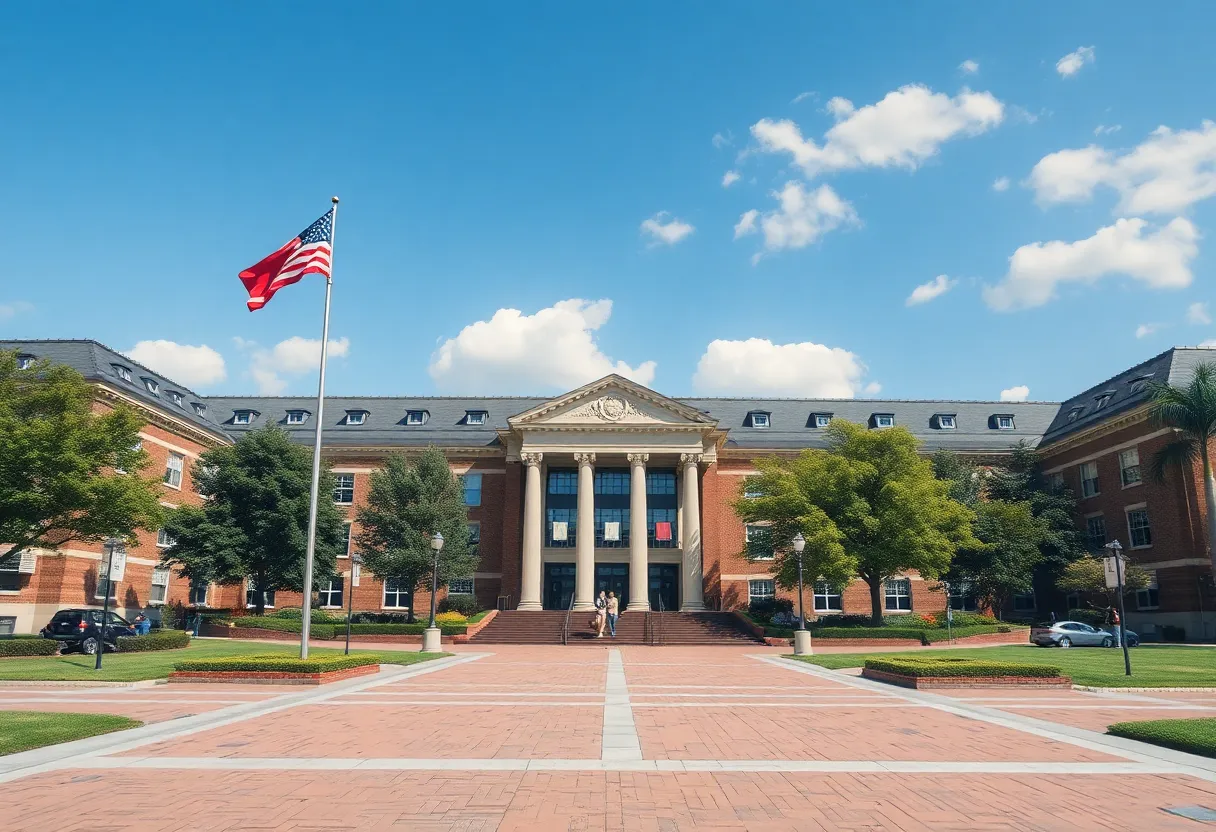

Harvard University stands strong against external political pressures.
Harvard University has taken a strong stance against the Trump administration, emphasizing its independence and refusing to comply with demands for policy changes. The conflict escalates around critical issues such as immigration policies, federal funding threats, and accusations of promoting bias. As these tensions rise, the implications for higher education in America become increasingly significant, with questions about academic freedom and the influence of political ideologies at the forefront of the debate.
In a dramatic twist, Harvard University is making headlines as it enters a significant showdown with the Trump administration. This moment comes amidst growing concerns around higher education policies and the influence of political ideologies on America’s oldest university.
The heart of the conflict lies in a bold declaration from Harvard President Alan Garber. He announced loud and clear that the university would not adhere to the administration’s demands for changes in its longstanding policies. Upholding its independence and honoring constitutional rights are at the forefront of Harvard’s stance. It’s a pivotal moment as two powerhouses—one being an influential educational institution and the other a White House with an agenda to challenge the very fabric of elite liberal ideologies—come face to face.
President Trump has taken an active role in criticizing higher education, particularly zeroing in on Harvard as a prime example of what he perceives as a liberal stronghold. Many Americans, especially within the Republican party, are expressing increasing skepticism about these elite institutions, with polls showing a growing disconnect from traditional college values.
As the Trump administration attempts to infuse its populist ideology into these institutions, it confronts belief systems that fundamentally oppose its own MAGA ideology. This clash signifies broader societal ripples, with tensions hitting an all-time high.
Adding to the turbulence are Trump’s immigration policies, which have created an atmosphere of fear on campuses nationwide. Students have faced detainments and visa cancellations linked to expressions of dissent against administration policies. Such actions raise serious questions about the freedom of expression and the risks students face for engaging in political discourse.
One major aspect of the administration’s pushback includes the threat of jeopardizing federal funding essential for crucial research, including work on diseases like Alzheimer’s and cancer. This funding freeze, totaling a staggering $2.2 billion, was implemented soon after Harvard’s refusal to comply with demands for audits regarding alleged campus bias.
Compounding these issues are controversies surrounding accusations of anti-Semitism related to campus protests, which have caught the attention of lawmakers keen on holding universities accountable. New York Rep. Elise Stefanik has led the charge against Harvard, using her opposition to elevate her profile within the GOP.
The administration’s demands are sweeping and significant. They include ending diversity, equity, and inclusion programs, putting an end to race-based hiring practices, and placing restrictions on student protests—especially those voicing support for Palestinian rights. Such moves are viewed by many as direct attacks on academic freedom and diversity of thought.
As this standoff escalates, the legal landscape is bracing for probable challenges. The administration’s demands encroach upon the autonomy of educational institutions, and many legal experts argue that they could face serious pushback in court. Moreover, the administration has also recently encountered lawsuits pertaining to its censorship of academic research that it deems politically controversial, particularly regarding LGBTQ issues.
The overall atmosphere reflects a growing populist backlash within the GOP, targeting prestigious universities as symbols of elitism and liberalism. Figures like Trump and JD Vance have taken a strong stance, branding these institutions as hostile environments that cultivate anti-American sentiments.
This ongoing confrontation is not just a battle between Harvard and the Trump administration; it signals a larger struggle for the future of higher education in America. As the situation unfolds, both sides remain firm in their beliefs, setting the stage for what could be a historic clash over principles and values that define education in the 21st century.
News Summary A deadly car crash in Little River, South Carolina, on January 18, 2025,…
News Summary Columbia is gearing up for a chance of snowfall starting Friday night, potentially…
News Summary Wildfires have engulfed South Carolina, leading to a state of emergency and mandatory…
News Summary In a somber event, South Carolina executed Mikal Mahdi by firing squad on…
News Summary A 39-year-old man, Charles E. Williamson, has been charged with arson for allegedly…
News Summary Duke Energy announces Tim Pearson as the new South Carolina state president, replacing…